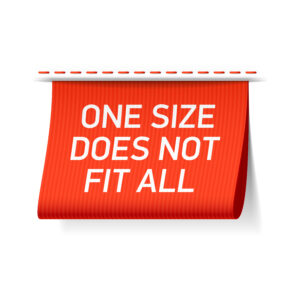Tax Season Got You Down? Blame Obamacare
What do you hate the most about taxes? Is it the simple fact that you have to file them? Is it the fear of being chosen for an audit? Is it all the confusing changes on tax laws and policies that drive you nuts? There are a lot of reasons people hate dealing with taxes, but this year, there could be a new number one reason for aggravation. Obamacare!
Although it’s actually called the Affordable Care Act, Obamacare, as most people know it, is sure to bring a lot of confusion and frustration this tax season. It will affect just about everyone in some way, but some more than others. Three aspects of your return in particular could feel the effects of Obamacare.
First and foremost, there is the individual penalty if you don’t have insurance. Here’s how the penalty works. If you don’t have insurance then you will pay the greater of the these two amounts:
- 1 percent of your annual household income, or
- $95 per person in the household for the entire year ($47.50 for those under 18).
Obamacare will also affect the Net Investment Income Tax, because as part of the plan there is a new 3.8 percent tax that will be added on to the capital gain rate. This 3.8 percent is applied to either the amount by which your adjusted gross income exceeds a certain tax threshold or to your net investment income; whichever is less.
Lastly, the Premium tax credit will also see the effects of Obamacare. Anyone who had health insurance via a Health Care Exchange could see the government subsidize his or her premiums.
So there you have it. Like it or not, Obamacare is probably going to affect you this year no matter what tax boat you’re in. Of course, we can help you get through the murky waters of the Affordable Health Care Act and ensure that you get the most from your return. Just call us at 1-877-CPA-2006 or click here.
The Roth Way to Riches
The Roth Way to Riches By Roy Lewis With all the recent tax-code changes, it seems a number of taxpayers have forgotten the Roth IRA. That’s a shame, because it’s far more than an ordinary retirement savings account. Roth IRAs are tax-favored accounts to which qualified taxpayers can make non-deductible, after-tax contributions. Those contributions can…
Health Savings Accounts (HSAs)
Health Savings Accounts (HSAs) Medicare legislation enacted in December 2003 provides for a prescription drug benefit that won’t exist until 2006. But also part of the new law is a provision that went into effect on January 1, 2004—the creation of the Health Savings Account (HSA). By opening an HSA, you may be allowed to…
Choosing Your Executor and Trustee
Choosing Your Executor and Trustee You know that it’s vital to make a proper will and keep it up to date. No less critical is the need to select your executor or personal representative with care. You may believe that any friend or relative whom you might select could do the job. Perhaps so. But…
Estate Planning is Not “One Size Fits All”
Estate Planning is Not “One Size Fits All” Married, never married, widowed, divorced—each of us has unique needs when it comes to how and to whom we make our bequests. Here, in a brief discussion, are a few checkpoints for developing an estate planning strategy for people who are on their own. Review your will…




